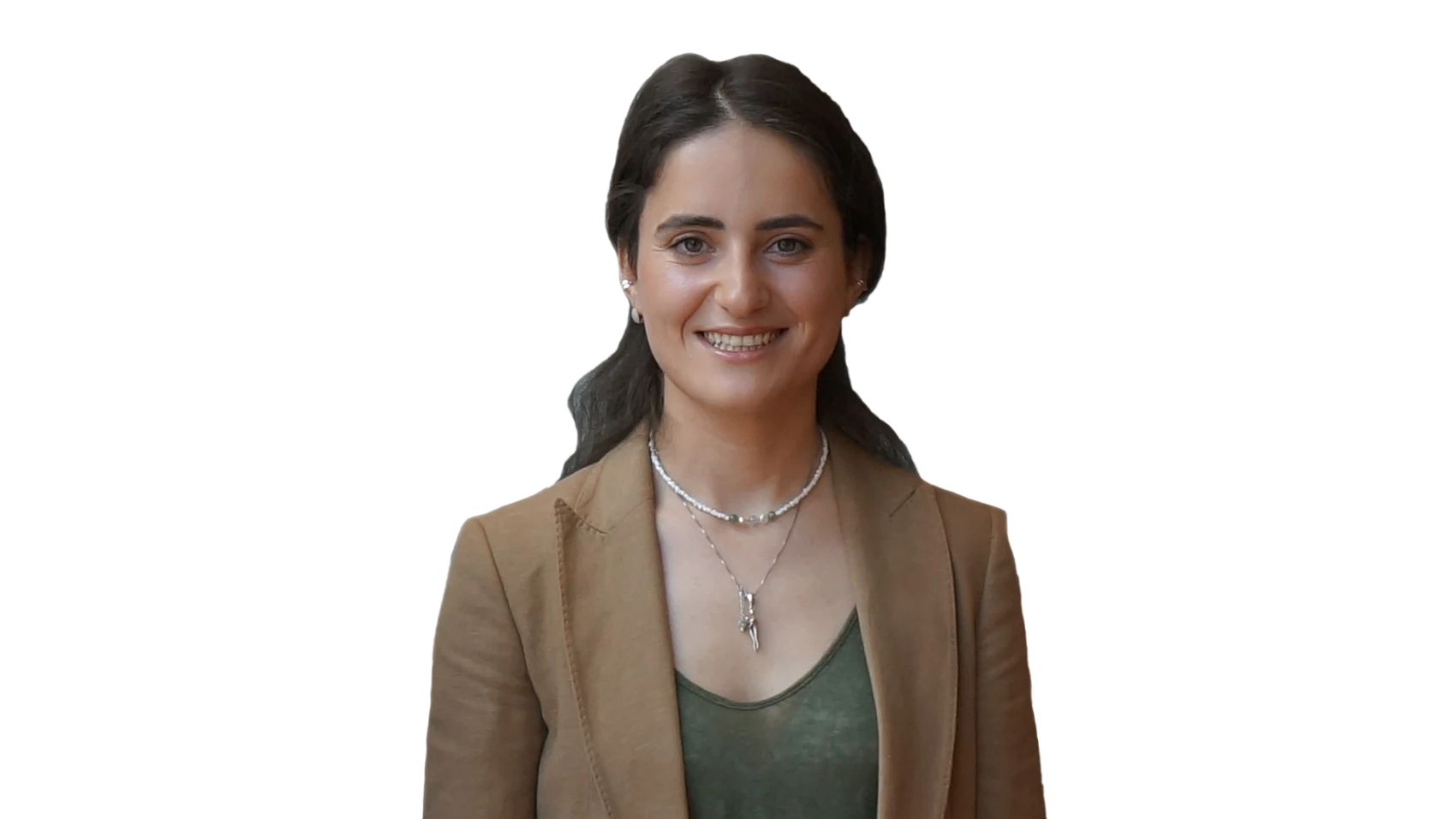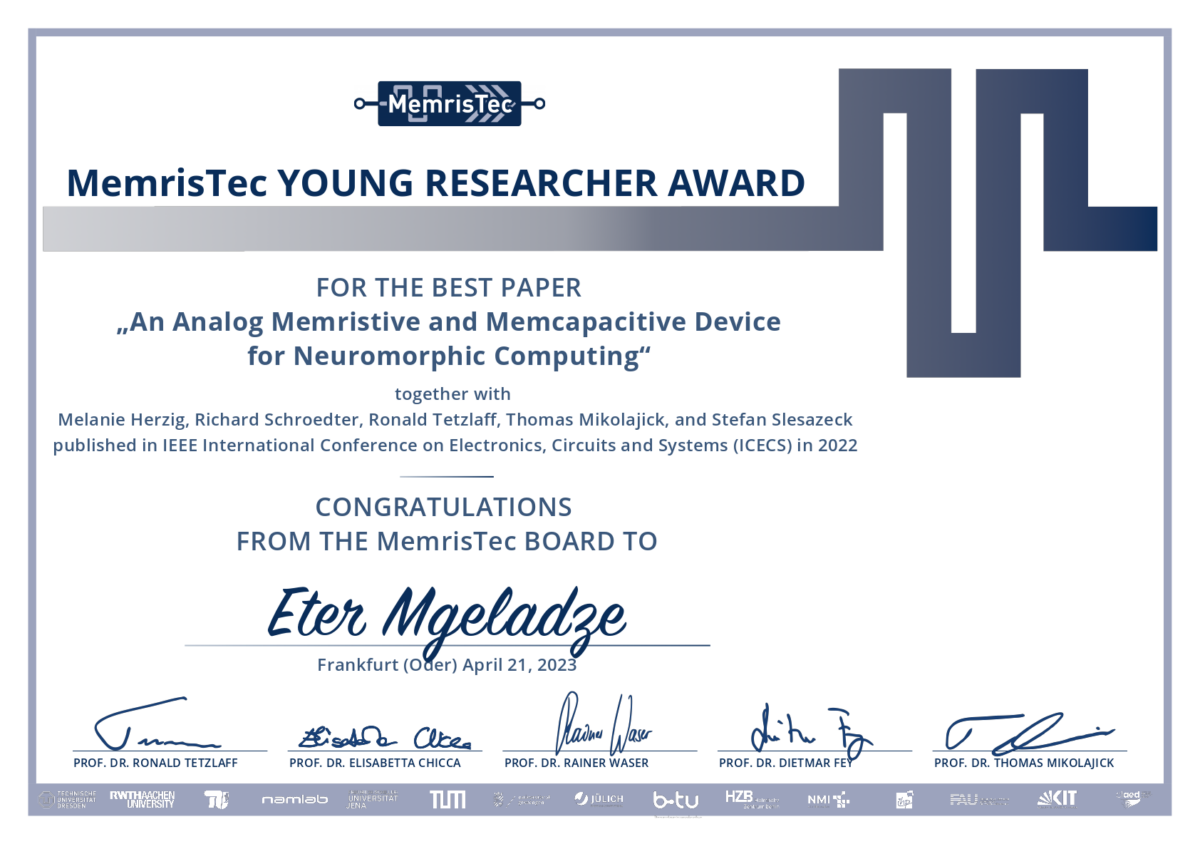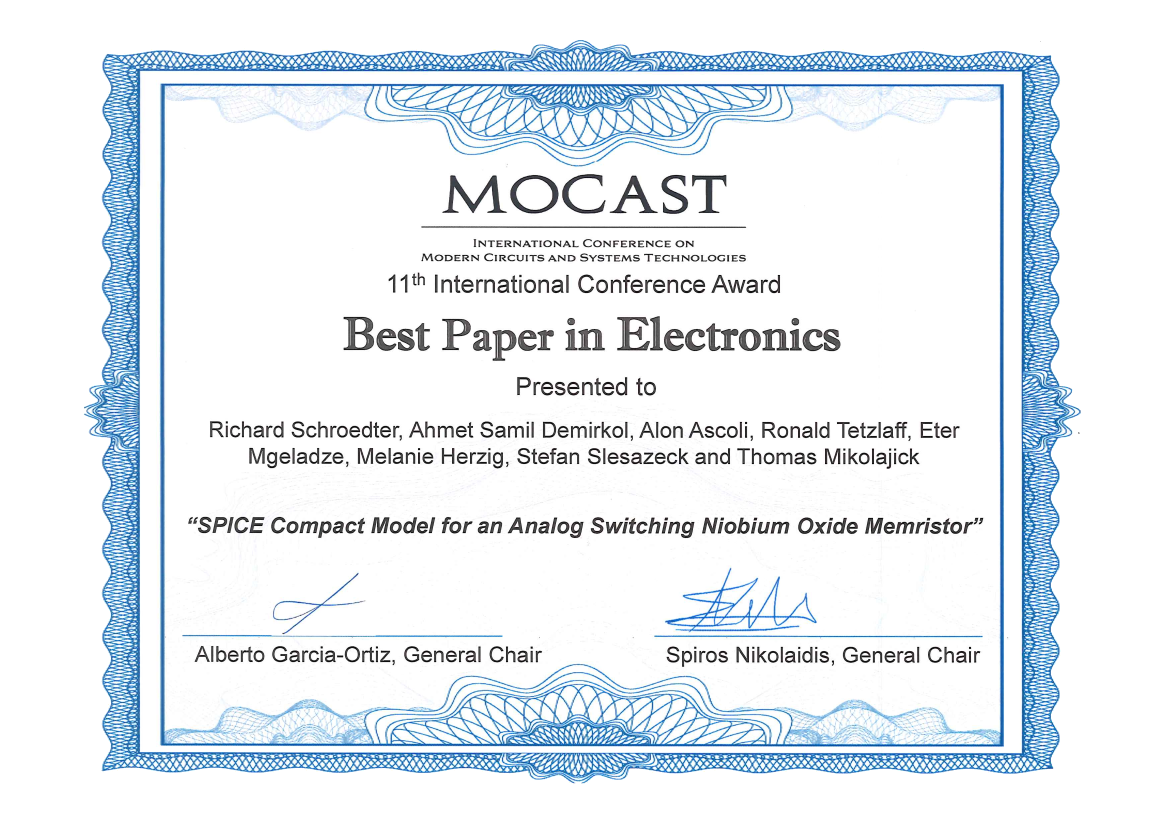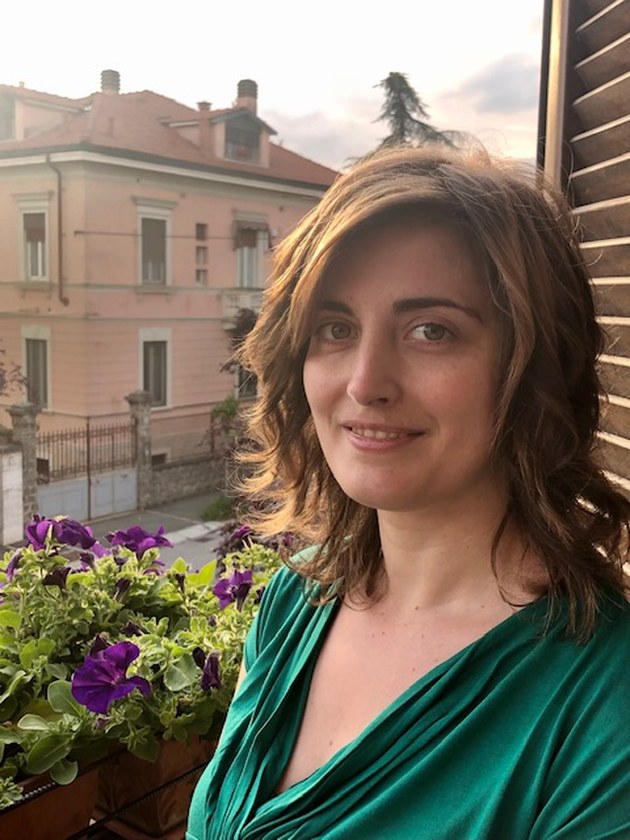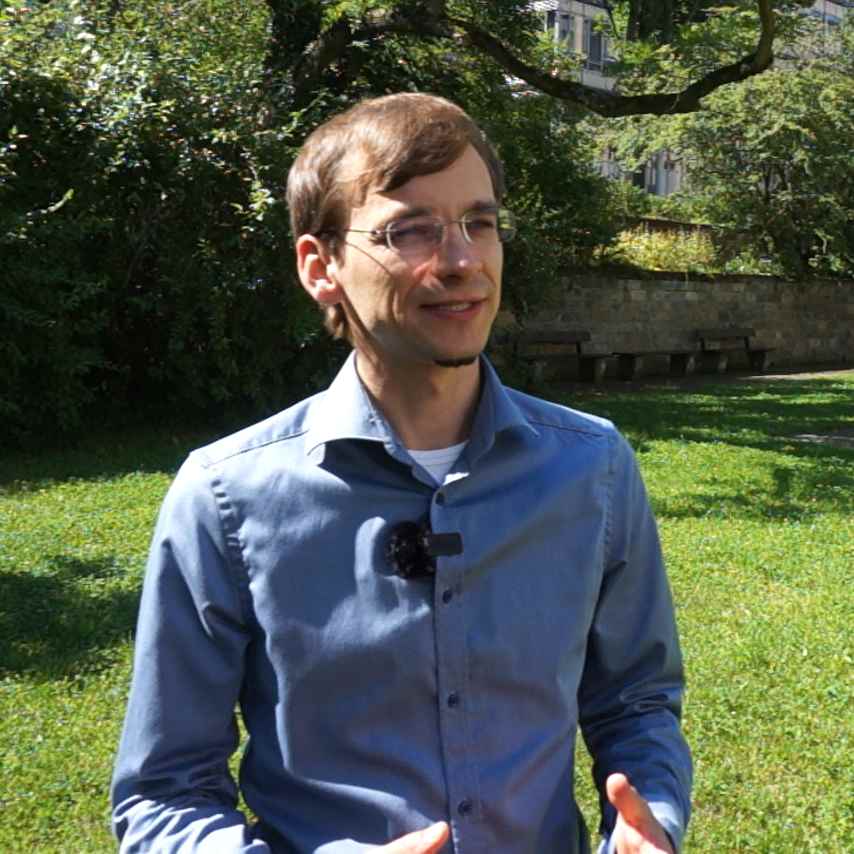During the workshop MemrisTec2023 Eter Mgeladze (NaMLab, BioMCross Projekt) received one of the two MemrisTec Young Researcher Awards 2023 for her paper „An Analog Memristive and Memcapacitive Device for Neuromorphic Computing“, which she presented at the conference IEEE International Conference on Electronics, Circuits and Systems (ICECS) in Glasgow, Scotland in 10/2022.
In this multi-disciplinary work research spans from material and device optimization, via electrical characterization towards basic modeling of the devices properties. One focus is the investigation of frequency-dependent potentiation and depression properties of analogue switching memristive devices. Moreover, there is a comparatively novel aspect – the interplay between memristive and memcapacitive properties within one device. The results are the base for more sophisticated modeling, that will lead to conception of new devices and circuits for low power neuromorphic systems, and as such is very timely, interesting and useful for the broader community.
All the best for Eter Mgeladze!
